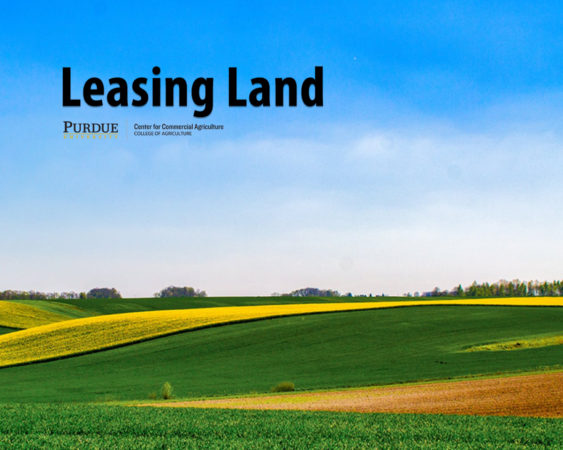July 8, 2019
Providing Reports for Crop Landowners
Communicating with landlords is crucial for tenants regardless of the type of lease that is utilized. It is prudent for a tenant to provide updates of crop conditions throughout the year and make sure that crop shares and possible bonuses emanating from flexible cash leases are understood by both parties. This article discusses how to effectively communicate through timely reports and the importance of providing an end of the year report.
Many landowners, particularly those that have farmed the ground in the past or grew up on the farm, have interest in what is going on during the growing season. Landlord reports could include a description of what was planted, how the crops are developing, rainfall, and photos of the crop. For a crop-share lease, it is important to keep the accounting of the expenses current. Explain each item on their bill and make sure the landowners understand each expense. It is often important for landowners to be able to classify each expense (e.g., seed, fertilizer, pesticide) for income tax purposes. Also, landowners often need information pertaining to historical crop yields so they can make crop insurance decisions. For flexible cash leases, it is important to provide potential yield and price information to landowners so they have a feel for whether they may or may not receive a bonus. Of course, landowners should have a detailed explanation as to how base case rents and bonuses are computed.
We encourage tenants to provide an end of the year report to each landowner. This report should include at least the following information: crops planted, crop yields by field or tract, production notes (including challenges), land issues (e.g., drainage problems), and plans for next year. For crop share leases, a detailed summary of shares should be included. For flexible cash leases, components of the rent formula (i.e., crop yields and prices) should be included.
TEAM LINKS:
PART OF A SERIES:
RELATED RESOURCES
Margaret Lippsmeyer, Michael Langemeier, James Mintert, and Nathan Thompson segment U.S. farms by farm resilience, management practices, and producer sentiment. This paper was presented at the Southern Agricultural Economics Meeting in Atlanta, Georgia in February.
READ MOREUPCOMING EVENTS
We are taking a short break, but please plan to join us at one of our future programs that is a little farther in the future.




